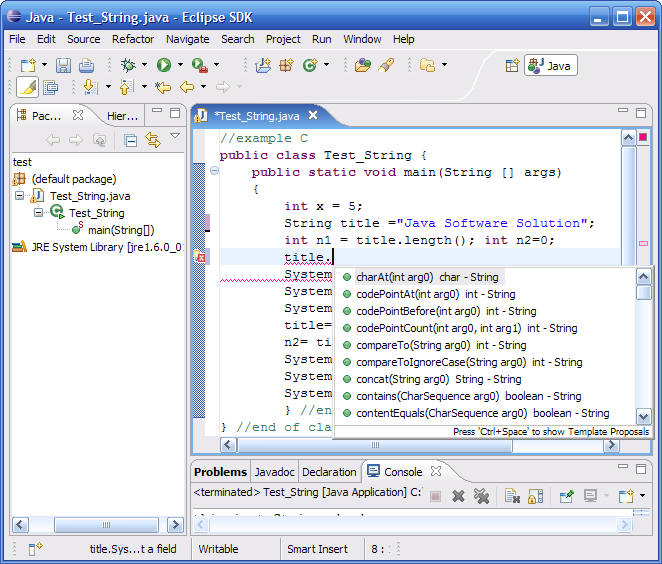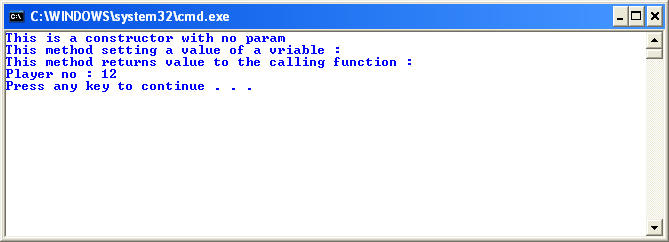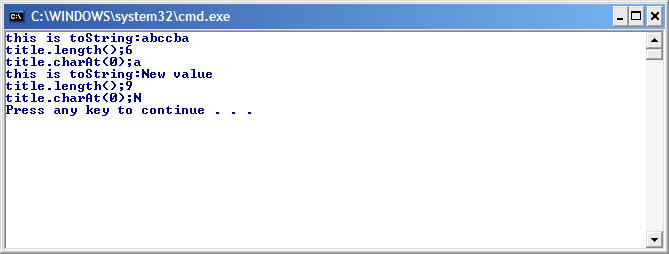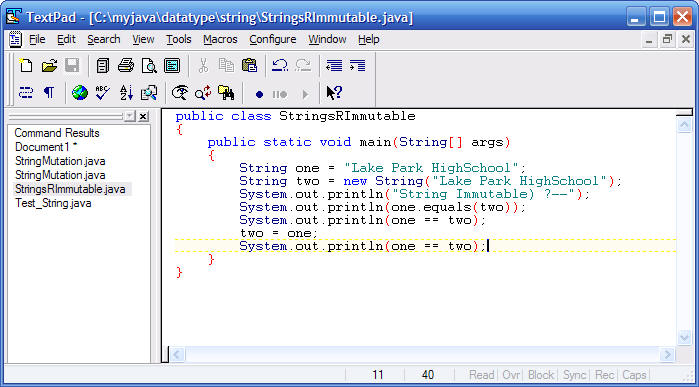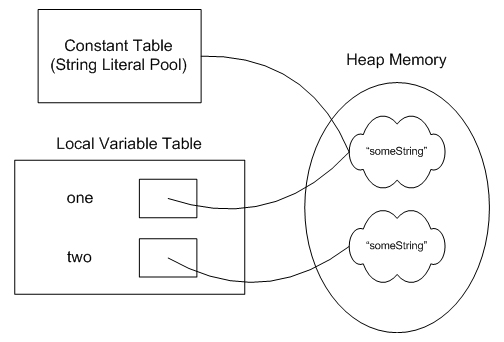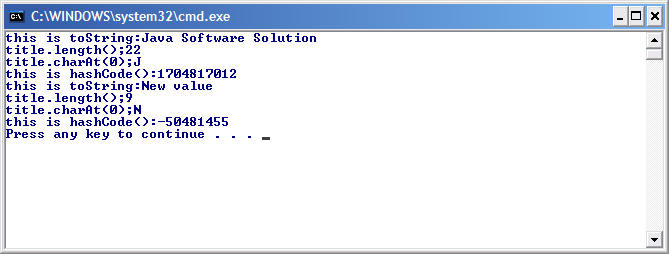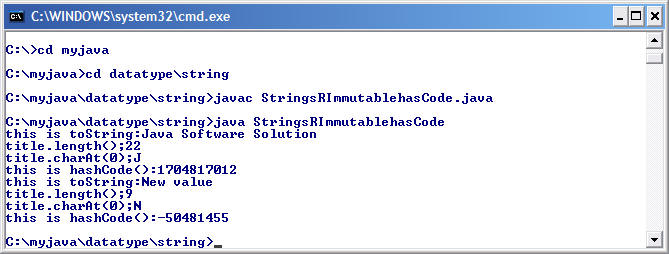- new operator is commonly used to create an object
- Sting does not create an object,
- Code
String title = " enclosed in a double quotes" ;
Now this "title", as it represents String object, it will inherit all sate and behaviors (method and properties).
Read more about methods and constructor: (Link)
- Once a String object created, it's value and length can't be changed
- String class is immutable
- The contents of string literals are indexed starting from 0. In a string "Hello" , "o" is indexed at 4.
String is Indexed.
String methods are useful, especially to a return a number or a string and display as an out put. as show below ( look advance concept right now, trust me it is not).
//javac test_get_set.java my code
// This is your Base class
public class test_get_set
{
//declaring variable
private int player_no;
public test_get_set (){ System.out.println("This is a constructor with no param");}
public static void main(String[] args) throws IOException
{
// creating instance and object "t" of the test class
test_get_set t = new test_get_set();
//send an argument to a method
t.set_no(12);
// ca
System.out.println("Player no : " +t.get_no());
}
// This is a private method to this method returns an integer when you call
private int get_no()
{
System.out.println("This method returns value to the calling function : " );
//intializing variable playr_no
player_no = 12;
return player_no;
}
//This method will consume the input but won't return any value
//as return is blocked
private void set_no(int n1)
{
System.out.println("This method setting a value of a variable : " );
//intializing variable playr_no
player_no = n1;
//return player_no;
}
}//end of the class
public class Test_String {
public static void main(String [] args)
{
int x = 5;
char data[] = {'a', 'b', 'c'};
String str = new String(data);
//java claims that Strings are not mutable, but it is
// note str object can change itself by calling itself with a new string
String title = str + str.replace(str, "cba");
int n1 = title.length(); int n2=0;
System.out.println("this is toString:"+ title.toString());
System.out.println("title.length();" + n1);
System.out.println("title.charAt(0);" + title.charAt(0));
title= "New value";
n2= title.length();
System.out.println("this is toString:"+ title.toString());
System.out.println("title.length();" + n2);
System.out.println("title.charAt(0);" + title.charAt(0));
} //end of the main
} //end of class
//csc StringsRImmutable.java
public class StringsRImmutable
{
public static void main(String[] args)
{
String one = "Lake Park HighSchool";
String two = new String("Lake Park HighSchool");
System.out.println("String Immutable) ?--");
System.out.println(one.equals(two));
System.out.println(one == two);
two = one;
System.out.println(one == two);
}
}
Can I prove it in Java? Not yet, Java does not have pointer, like C++ or VB.Net , or C#'s delegates
very close to prove it
//csc StringsRImmutablehasCode.java
public class StringsRImmutablehasCode {
public static void main(String[] args)
{
int x = 5;
String title ="Java Software Solution";
int n1 = title.length(); int n2=0;
System.out.println("this is toString:"+ title.toString());
System.out.println("title.length();" + n1);
System.out.println("title.charAt(0);" + title.charAt(0));
System.out.println("this is hashCode():"+ title.hashCode());
title= "New value";
n2= title.length();
System.out.println("this is toString:"+ title.toString());
System.out.println("title.length();" + n2);
System.out.println("title.charAt(0);" + title.charAt(0));
System.out.println("this is hashCode():"+ title.hashCode());
}
} //end of class
Although we were thinking we were mutating, but did not
